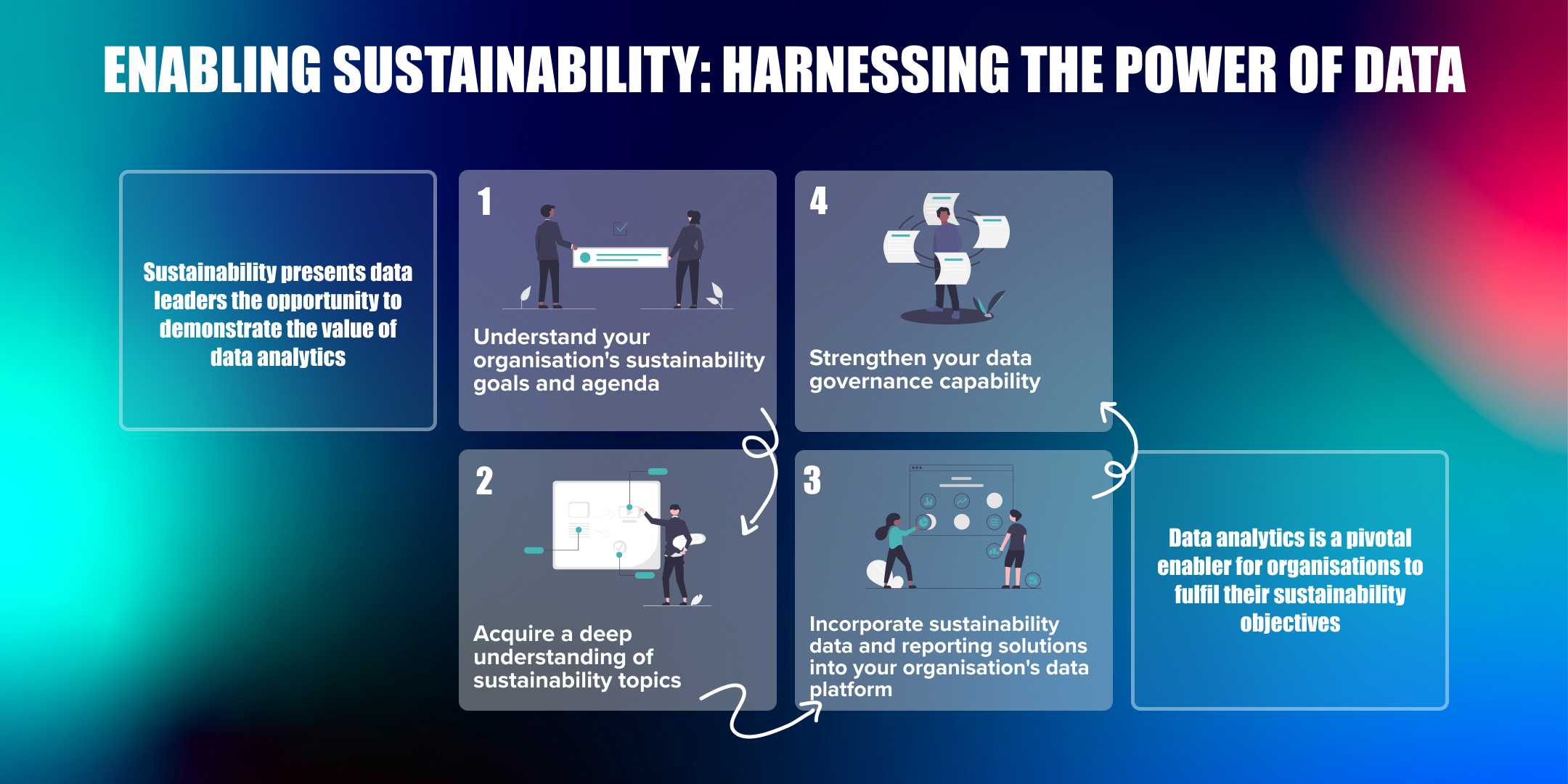By Hrayr Diloyan, Partner, Data & AI
As more and more organisations seek to be more sustainable, Chief Data Officers (CDOs) and their data teams are presented with a remarkable opportunity to showcase their value and drive sustainability through the strategic application of data analytics.
Delivering a successful data strategy remains a significant challenge for most organisations, with a disappointingly low success rate. According to a recent survey conducted by Gartner, only 44% of data and analytics leaders reported delivering the desired value to their organisations1. The good news is that CDOs significantly increase the chances of successfully executing their data strategy when they identify and align use cases with the overall organisational strategy, rather than solely on technology platforms or tactical use cases.
Sustainability reporting requirements, together with wider Environmental, Social and Governance (ESG) reporting requirements, are increasingly becoming mandatory due to a number of factors including investor pressure, customer expectations and regulations such as the European Union’s (EU) Corporate Sustainability Reporting Directive (CRSD), which is due to come into effect for large organisations operating in the EU in 2024. Many organisations are also choosing to focus on sustainability and adopting sustainable practices to gain a competitive edge by improving efficiency, reducing costs, retaining talent and driving innovation. The desire to want to measure and report on sustainability data represents a tremendous opportunity for data leaders to drive successful data strategies.
While sustainability presents an opportunity for CDOs, it also poses its own set of challenges. Successfully addressing sustainability requirements demands a distinct skill set, specific technologies, and new approaches to work.
So, what steps should CDOs take to capitalise on this opportunity and address the challenges?
- Engage with Chief Sustainability Officers to understand the organisation’s sustainability goals and agenda
By doing so, CDOs can identify high-value, high-impact use cases that align with these objectives, ultimately positioning their data strategy and their team’s capabilities as a pivotal enabler for sustainability.
- Acquire a deep understanding of sustainability topics
Ensure their data teams, as well as other individuals involved in executing the data strategy, acquire a deep understanding of sustainability topics such as grasping the nuances of Scope 1, 2, and 3 emissions and the relevant metrics associated with each scope2, emissions calculation methodologies and emission reporting frameworks.
- Incorporate sustainability data and reporting solutions into the organisation’s data platform
Ensure their technology platforms can incorporate sustainability data and reporting solutions into the organisation’s data platform. This involves carefully integrating internal and external data from the organisation’s supply chain, both upstream and downstream, to accurately calculate and report on all three emission scopes. For instance, if an organisation has chosen Microsoft Sustainability Manager as its sustainability management solution, considerations must be made regarding how this solution complements and integrates with the primary data and analytics platform, such as Microsoft Synapse or Microsoft Fabric1.
- Strengthen their Data Governance capability
This will play a crucial role in advising organisations on data ownership and stewardship for the accurate collection and transparent reporting of sustainability data.
Conclusion
In summary, data and analytics are a pivotal enabler for organisations to fulfil their sustainability objectives and CDOs can use this opportunity to further drive their initiatives to help organisations harness the power of data.
Partnering with FSP for a Sustainable Future
If you want to explore other enablers for achieving sustainable digital transformation, we invite you to check out our white paper which also contains pragmatic advice for digital leaders looking to find out more about sustainability and how it can benefit their transformation initiatives. Feel free to get in touch with us at sustainability@fsp.co to find out more about these topics and discuss how we can help your organisation thrive in the realm of sustainability.

